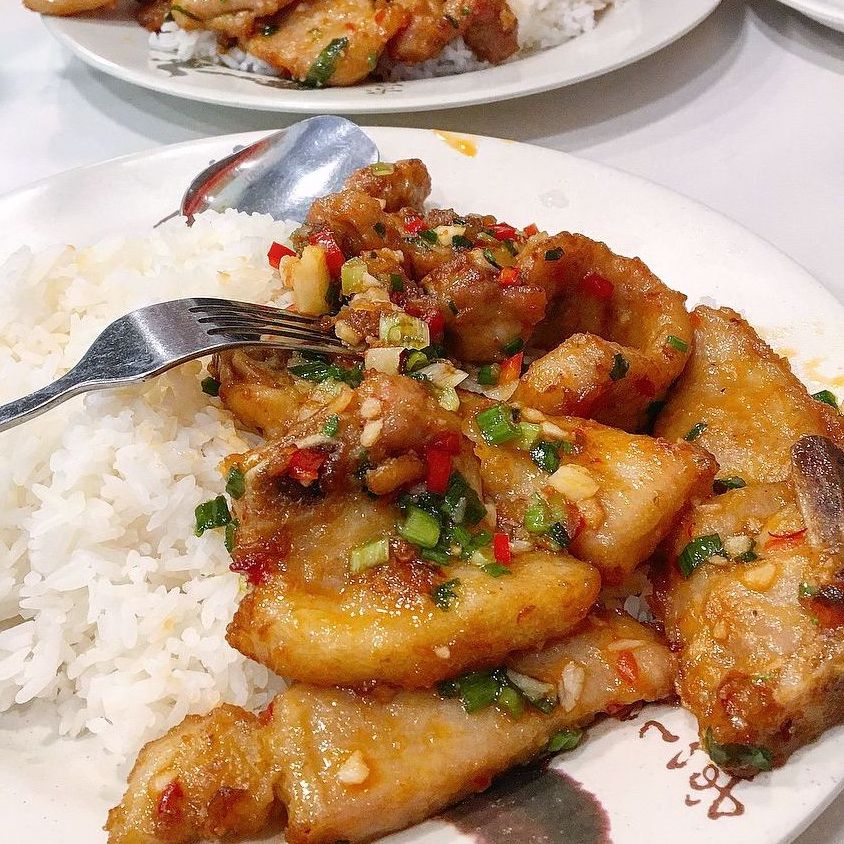


Hong Kong's famous open-air food stalls, known as dai pai dongs, have been a beloved part of the city’s culinary culture for decades. These stalls have been known for serving affordable and delicious street food, offering locals and tourists a unique dining experience. However, in recent years, the future of these open-air food stalls has become uncertain due to government regulations and changing consumer preferences.
The decline of dai pai dongs can be attributed to several factors. The government has imposed stricter regulations on these stalls, limiting their numbers and imposing restrictions on their operations. Many dai pai dongs have been forced to close down or relocate to indoor food courts as a result. This crackdown on open-air food stalls is seen as a loss of Hong Kong's cultural heritage and a shift towards more sanitized and commercialized dining experiences [1f21432a].
Despite the challenges, some dai pai dongs continue to operate, serving traditional dishes like stir-fried noodles and barbecued meats. These remaining open-air food stalls are a testament to the resilience of Hong Kong's culinary culture. However, their future remains uncertain as they face increasing pressure from regulations and changing consumer preferences. The decline of dai pai dongs reflects a broader trend in Hong Kong's dining scene, where there is a growing preference for more upscale and international dining options [1f21432a].
In addition to the challenges faced by open-air food stalls, Hong Kong's dining scene has also seen changes in consumer preferences. One popular and affordable comfort food in the city is the one-plate "dish rice." This dish is served at grab-and-go takeaways and cha chaan tengs, featuring a variety of stir-fry dishes on top of steamed rice. It is known for its versatility, availability, and affordability, with prices as low as HK$39 [1f21432a].
Kuen Fat Restaurant in Yau Ma Tei is one of the best-known places for dish rice in Hong Kong. They offer a variety of toppings, including tofu with roast pork, Chinese eggplant with minced pork, and pan-fried chicken steak. Another popular variation is topped rice, which features only one single main dish on top of rice. The Cantonese salt and pepper pork chop is a must-try dish [1f21432a].
The dish rice and topped rice options provide a simple and satisfying meal option in Hong Kong's diverse food scene. They are popular among locals and tourists alike, offering a taste of Hong Kong's cuisine at an affordable price. These dishes showcase the versatility and flavors of Cantonese cuisine, adding to the rich culinary landscape of the city.
Meanwhile, a recent opinion piece highlighted the contrast between North American diners and their Hong Kong counterparts. North American diners are celebrated for their comfort food, such as burgers and waffles, and serve as neighborhood hangouts with chatty waitstaff. In contrast, attempts to replicate this diner culture in Hong Kong, such as Al’s Diner, which closed in 2023, and establishments like The Diner and Burger Circus, have been criticized for lacking authenticity and feeling more like imitations [ca04486b].
The piece also noted that while North American diners evoke nostalgia linked to TV shows like "Happy Days" and "Seinfeld," Hong Kong’s versions fail to capture the essence of the original cha chaan tengs. Imitation cha chaan tengs in Toronto, for instance, have struggled to resonate with diners, further emphasizing the unique cultural significance of authentic Hong Kong food stalls and diners [ca04486b].
Adding to the challenges faced by local eateries, Hung Wan Cafe, a cha chaan teng featured in the 1998 comedy 'The Lucky Guy,' has announced its permanent closure after December 25, 2024, following over 40 years of operation. The decision to close was made two months prior due to sluggish business post-COVID-19 pandemic. Many patrons, including Chan Shuk-mee, 76, and her son Ho Ka-kit, 52, expressed sadness over the closure, highlighting the emotional connection many have with such establishments. In recent days, the cafe has seen an influx of customers as news of its closure spread, reflecting the nostalgia and community ties associated with local dining spots. The broader food sector in Hong Kong has faced significant challenges, with retail sales shrinking for eight consecutive months and restaurant receipts declining year-on-year [6aecd579].
As the culinary landscape in Hong Kong continues to evolve, it remains to be seen how the government and the local community will address the challenges faced by open-air food stalls and whether efforts will be made to preserve and revitalize this integral part of Hong Kong's food heritage.